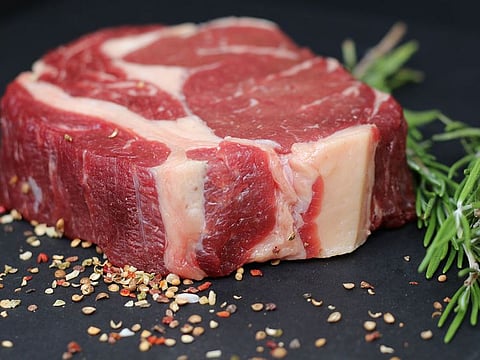Is lab-grown meat halal? what experts say
Opinions vary among experts on how to qualify lab-grown meat

Dubai: If you make a steak from a cow’s meat, but the cow was never slaughtered in the process, is that steak halal or not?
It’s not a riddle, but that question is dividing opinions, even among Islamic scholars. For food production companies, such as California-based Just, which make lab-grown meat using a single cell of an animal, the answer can determine their very presence across the Middle East and other Muslim-majority countries.
While some argue that, in Islam, meat is only halal if it is from certain animals that are slaughtered and treated in a certain manner, others argue that this may be moot if no animal is slaughtered in the first place.
A Reuters report cited the Islamic Institute of Orange County in California as saying that “there does not appear to be any objection” to eating lab-grown meat.
But perhaps the lack of objection is because lab-grown meat is not mentioned in the Quran in the first place, as Chernor Saad-Jalloh, an imam at the Islamic Cultural Centre of New York, points out.
“This is new to us, something I’ve never thought about. This isn’t something you would find in the Quran,” he told Quartz in an interview.
Dr Abdul Qahir Qamar, director of Fatwa and Sharia rulings at the International Islamic Fiqh Academy in Saudi Arabia, told GN Focus in 2013 that lab-produced meat would not be considered meat from live animals, but would be “cultured meat.”
Because the animal is not slaughtered, he considered the meat to be similar to yoghurt, where milk is extracted from a live animal.
Still, the varying opinions among experts could be enough to keep many practicing Muslims away from eating lab-grown meat.
New York’s Saad-Jalloh told Quartz that there are many things that need to be discussed before sticking a Halal label on such meat.
California-based Just, which is planning to launch lab-grown beef and chicken soon, told Gulf News it is currently trying to ensure its meat is halal before exporting to the Middle East, and is working with experts to do so.



